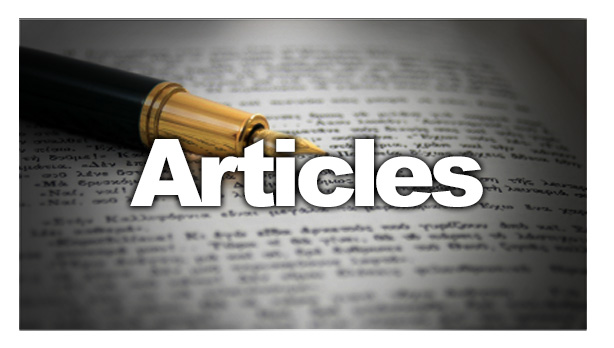Ghazala Anbreen
The institutes offer a durable ground for any state and a basic pillar whether it is judiciary, bureaucracy, police or accountability. In Pakistan efforts were done for improving the performance of different institutes but owing to discontinuity of policies and lack of an ineffective accountability mechanism worthwhile results could not be acquired.
Different countries of the world testify to the fact that the durable progress of any country depends not only on its natural resources but also on the way how its various institutes function and how much transparency is there in its relation with the people. For a developing country like Pakistan where there are both avenues for opportunities and challenges, the real institutional reforms are not mere an option but a sole way for true development on firm grounds.
The devaluation of rupees, imbalance of imports and exports, less opportunities of employment and huge burden of IMF loan worsen the problem. There are melting glaciers, increasing rains and floods and cutting of trees. The need for planting more trees and adoption of environmentally friendly use of energy are pressing demands indeed.
Institutional building reforms are required to run the affairs of the government in a transparent manner. In the context of Pakistan these include accountability and evoking public trust. Advantages that may accrue of these and the ways to implement can be discussed as follows:
The reforms which are essential include establishing fast track courts, early decisions of court cases provision of free legal help for poor citizens. Introducing civic education in schools and acquainting the people of their rights and obligations are also important areas. Giving local government bodies more autonomy to function transparently can serve as the cornerstone for raising prestige of that very country at an international level. Allowing these bodies more authority and enabling them to manage the affairs of collecting taxes, schools and hospitals may increase the level of confidence and build public trust.
Regarding education problems, one reason can be absence of any single curriculum and huge difference of imparting education in the government and private institutes. There is a strong need for skill-based education supplemented by use of modern technology in education.
In the attempt to flourish democracy, there is also required respect for parliament, the supremacy of constitution, free judiciary and provision of basic rights to the citizens of Pakistan.
A serious concerted effort must be done to improve the role of youth in the national development for provision of employment and skills, national volunteer programs for youth, and encouraging them for leadership roles. On international level improving the image of Pakistan can be possible through a balanced foreign policy, improving the relations of Pakistan with China, Afghanistan, Iran and USA. Importance of CPEC is equally significant.
Role of women in Pakistan is also a must. Their inclusion in education, jobs and politics, providing legal protection to them in case of domestic violence and addressing safety at work place can ensure their character building and would give them more autonomy.
Culture of Pakistan and national identity are central areas. Pakistani culture is unique, the folk music, languages and the historical places like Mohenjo-Daro, Taxila, Badshahi mosque and many other historical places impart a rare richness to it.
Cyber security and digital Pakistan are likewise important. Cybercrimes, legislation and exposing fake information on social media, e-governance and digitally organizing the institutional reforms are indispensable for development and bringing cohesion.
At international level examples can be cited of Rwanda and Malaysia as a case of reorganizing their systems. In Rwanda in 1994 there was a tragic human genocide which made the institutes paralyzed and dysfunctional. People had lost trust on state. But its leadership tried to organize the institutes in order to take the country out of the crisis. Trust of the people was restored by giving preference to transparent governance, provision of digital-based services and ensuring supremacy of merit in the civil service. A serious move towards anti-corruption was started and necessary measures were adopted. The result is that today Rwanda has achieved a prominent status in the fields of economic, education and health.
Another example is that of Malaysia. There is a vision, continuity of policies and a reform process. According to Vision 2020, it modernized the institutes as per long term policies and plans which led to yielding positive results. Service delivery was improved through the use of technology. An effective institutional state mechanism was founded against corruption. Targets were set for bureaucracy and they were linked to national progress. Today the success of Malaysia is a proof that continuity of policies and institutional reforms guarantee development of a country.
For Pakistan guiding principles can be adoption of measures like increasing training avenues and increasing expertise of the workers employed in different departments on modern lines and equipping them with the latest skills. Bringing automation is crucial, as digitalization not only brings transparency but also leads to a better and speedy decision making. Institutes must be given more autonomy and should be devoid of any external influence. This is possible by resorting to merit-based transfers and appointments and decision making as per law is a must.
Effective accountability is essential because no institute can work without this. Every state department must have an effective accountability mechanism. Strengthening governance at lower level can lead to quick resolution of the problems because it is a prerequisite for earning public trust.
It is important that our acts must be in line with our intentions. It can be ensured when the institutional reforms are not mere suggestions in the files of a reform agenda but they are oriented towards a serious, concerted national determination, continuous and inclusive process. All this is imperative because Pakistan is a country where the youth under 30 years constitute 60 to 68 percent of the population, it is a country where there is no dearth of natural resources and which has an important place in the region. Keeping in view all these facts it becomes an obligation for us all to start working on these reforms. The journey from crisis to successes is possible provided it is backed by transparency, merit, a professional proficiency and political will. The institutional reforms provide the way to Pakistan to start its journey towards a firm progress, win an international confidence and bring internal stability.

















